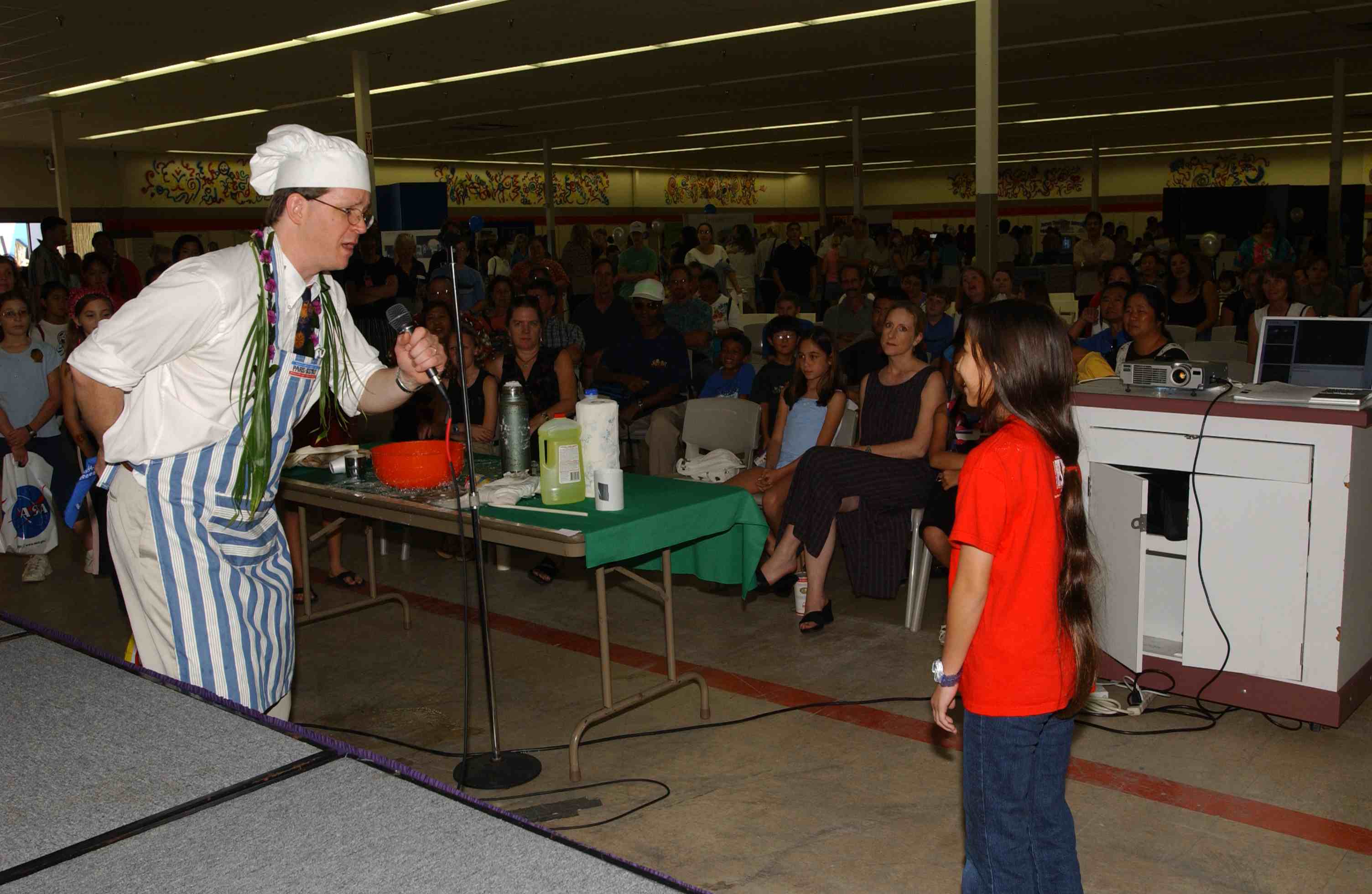
The Center’s Dr. Timothy Livengood, a planetary scientist, takes a family audience in Hawai’i on a journey to a comet. Click on Image for Zoom and Details
The Institute’s programs provide a window on the nature of science and the lives of modern-day explorers, with special emphasis on not just what is known about our world and the Universe but how it has come to be known. This approach reveals the very personal means by which researchers ask questions of the world, empower themselves to create a pathway to an answer, and hopefully bear witness to something new to the human race.
Programs develop an understanding of the process of scientific inquiry in audiences, requiring teams of educators and researchers on staff to seamlessly integrate process, content, and pedagogy.
The embraced educational paradigm is— inspire … then educate.
It is a vision recognizing that our understanding of the Universe is far more than just a book of knowledge. Understanding comes from curious people working hard and smart, and ultimately reveling in their ability to pull back the veil of nature and bear witness to something wholly new. If knowledge is the end, then it is the remarkably human journey to that end that embraces imagination and ingenuity and has the power to captivate. And placing the learner within this context of journey provides them a deep appreciation for the book of knowledge, a richer grasp of the content and its conceptual underpinnings, an appreciation of the very human pathway researchers take from question to answer and, in some, will inspire the next generation of engineers and scientists.
This pedagogical approach to science education is embedded in the stories we tell to thousands of students in a community’s classrooms, and at family and public programs; is the core instructional design philosophy for our grade K-12 lessons; and defines how we model best teaching practices during professional development workshops.
| The Power of Heroes
We are all born curious. We are all born to learn, and to revel in the act of learning something new. It is so innately human that societies build schools and school systems dedicated to the education of their children. But learning is a very personal experience that can only be empowered by the learner. Teachers and parents may lead the way, creating an immersive environment for learning, but it is a journey that is begun and seen to its conclusion by the learner. It is a journey that each of us is meant to take regularly and throughout life. A journey of personal learning most often begins with inspiration. It may come from others who have been there before us—those who can impart a sense of the human experience. To us, these are our heroes. Their inspiration empowers us to take that first step, to ask that first question— it propels us to discover a world we never knew existed. Our heroes truly have the power to launch us on a remarkable journey. And heroes can come in many different flavors—why not scientists and engineers? What better hero to inspire the next generation of the curious than an engineer figuring out how to build machines to detect other Earths around distant stars, the meteorologist creating sophisticated computer models for hurricane prediction, or the planetary scientist searching for life on Mars? |
||
